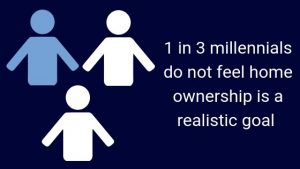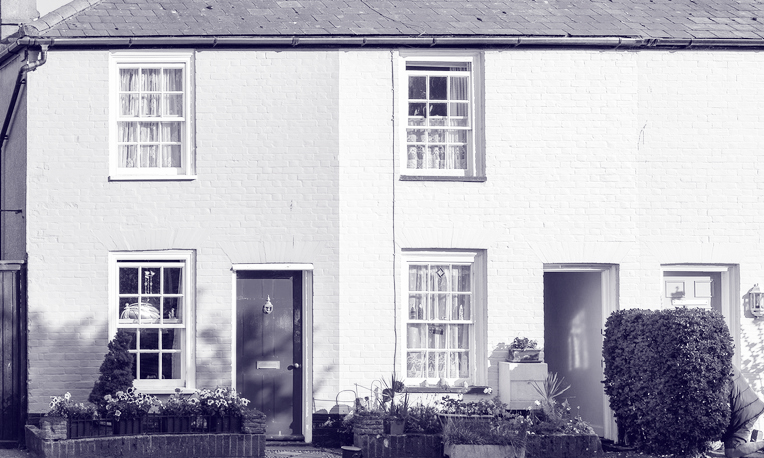With salary increases not matching the rate of property price inflation, it is not surprising that many assigned the label of Generation Y are struggling to secure mortgages. Owning a home in the future is extremely important to young adults and those falling into the 18 to 34 category – classed as Generation Y – are no exception.
Millennial goals
Each demographic is shaped by history and economy; Generation Y is no different. Millennials are treading a different path due to social and financial factors compared to their counterparts of the past decades. In the 60s, 70s and 80s buying a property was relatively easy, even in London.

Today, Millennials are getting married later (decreasing their chance of buying a house by 18%), having children later and spending more time studying and travelling. Furthermore, back in 1966 the average UK property cost £3,840. Today it’s now 60 times higher at £226,906 according the Office for National Statistics. Based on Wellesley’s research, just 1 in 3 young adults do not consider owning their home to be realistic goal. A further 30% of respondents believe that securing their own home is not possible without financial help.

First-time buyers
A study conducted by The National Housing Federation last year revealed that first-time buyers in London, on average, would need to save £2,300 a month to secure a property of their own in 2012. With the typical monthly salary in the capital around £2,872, this would leave individuals with £572 to cover rent, bills and all other living expenses.
| Area | Average Monthly Pay | Savings Needed Per Month | Monthly Spend Left |
| South East | £2,509 | £1,410 | £1,099 |
| South West | £2,077 | £1,000 | £1,077 |
| East England | £2,333 | £1,200 | £1,133 |
| West Midlands | £2,083 | £823 | £1,260 |
| East Midlands | £2,166 | £787 | £1,379 |
| Yorkshire | £2,023 | £725 | £1,298 |
| North West | £2,083 | £723 | £1,360 |
| North East | £2,034 | £638 | £1,396 |
Here is how the rest of the UK fares for first-time buyers:
Taking into consideration that millennials spend around 15% more on rent, utilities and food compared to previous generations, it is much easier to end up spending deposit savings than it used to be.
Mortgage matters
Under rules imposed by the Bank of England in 2014, mortgage customers can only borrow (at the absolute maximum) 4.5 times their income. The average weekly wage of a 20-something is £445 per week. Translated into a yearly salary this equates to £21,360. This means, the highest amount the average millennial could borrow would be £96,120. With the average house price for a flat or maisonette in the UK coming in at £228,099, that’s a discrepancy of £131,979 that needs to be found. For most, without a huge deposit or help from Mum and Dad, securing a property is not something many in Generation Y consider.
Attitude towards home ownership
Published in January 2018, the latest English Housing Survey showed that the average age of a first-time buyer is 33 and an average deposit for a first-time buyer is £48,951. Research suggests that millennials are giving up on buying their own home in favour of being financially stable, albeit renting, and financially free to a certain extent.
The 1990s saw a fall in house prices when homeowners suffered negative equity when interest rates shot over 10%. Despite a small dip in housing prices again in 2008 due to the financial crisis, they have been rising faster than ever. Subsequently, the required deposit amount has increased to unattainable levels for millennials and, without help, many have reached a tipping point where they simply do not even consider property ownership an option.
Buying a property as a millennial
Despite the government abolishing stamp duty for first-time buyers and a number of schemes and ISAs to make the burden of homeownership easier, the general feeling is that millennials consider themselves fighting a losing battle. Whilst some remain resilient with their savings, the majority, as Wellesley research reiterates, have succumbed to the notion that that they cannot buy a property without serious financial help.
